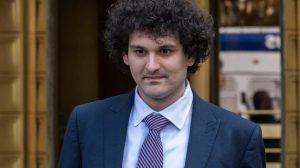A federal jury in Texas, United
States, has ordered Apple Inc to pay $300 million in damages following retrial
in a patent dispute over wireless technology.
The
iPhone maker owes the lump sum amount to ‘Optis’, which refers collectively to
Optis Wireless Technology LLC, Optis Cellular Technology LLC, Unwired Planet
LLC, PanOptis Patent Management LLC and Unwired Planet International Limited.
ALSO READ: What are FAANG companies?
A
jury last year awarded Optis $506 million in damages over Apple’s infringement
of five wireless standard essential patents.
While
upholding the jury’s liability, US District Judge Rodney Gilstrap ordered in
April a new trial for the amount of damages.
ALSO READ: Microsoft becomes 2nd US company to join $2 trillion club
The
trial is part of Optis’s legal battle against Apple to collect $7 billion. In
July, Apple’s lawyers threatened the company’s pullout from UK if it was forced
to pay a “commercially unacceptable” amount amid a series of related trials in
the country.
ALSO READ: When does the iPhone 13 come out?
Optis
claims its patented technology is being used by Apple in its smartphones,
watches, and tablets that operate over 4G networks.
Optis
has accused Apple of rejecting all fair offers and argued that the tech giant
should lose its right to “fair, reasonable and non-discriminatory,” or FRAND,
terms, if it’s found guilty of being an “unwilling licensee.”
“We
thank the jury for their time but are disappointed by the verdict and plan to
appeal,” Apple said in a statement. “Optis makes no products and its sole
business is to sue companies using patents they accumulate. We will continue to
defend against their attempts to extract unreasonable payments for patents they
acquire.”
ALSO READ: In Apple Versus Epic Games battle, Elon Musk just picked a side
In
March, Apple had agreed to pay up to $500 million to settle a lawsuit in the US
accusing it of slowing down older iPhones to shore up sales of new models.
Apple
said it had committed no wrongdoing and had decided to settle the case to avoid
the burdens and costs of litigation, according to court papers.







